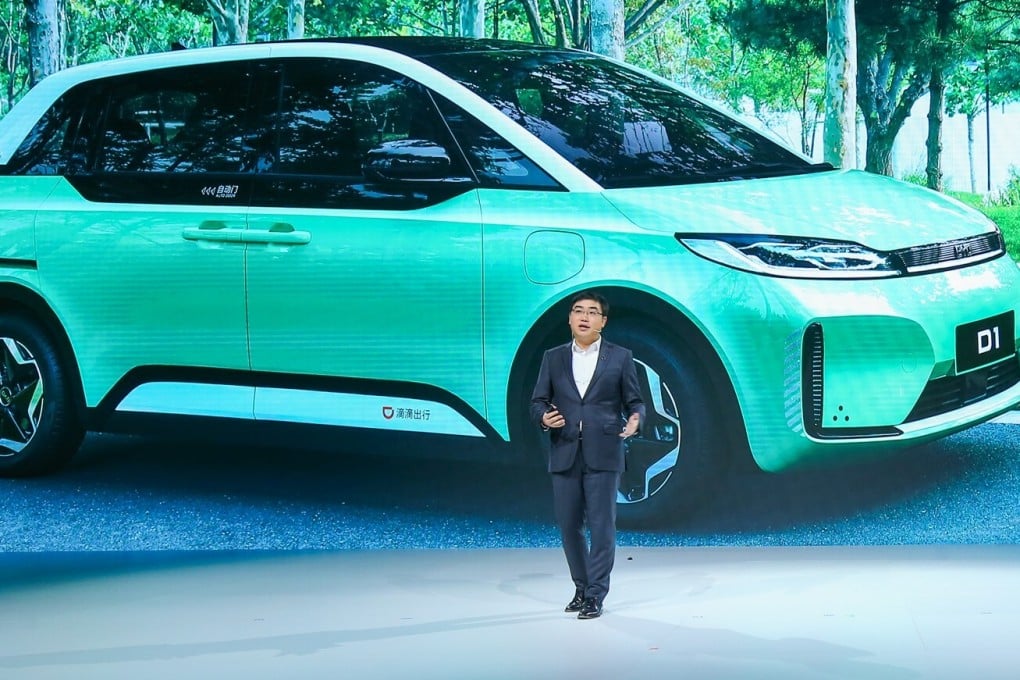China’s Didi Chuxing launches first electric vehicle tailored for ride-sharing services
- Didi hopes the D1 will be a starting point for changes in the mobility market and in business models used by its partners, says CEO Cheng Wei
- The Beijing-based company wants ridesharing services to meet 30 per cent of mobility needs by 2030, up from 3 per cent now

Chinese ride-hailing giant Didi Chuxing launched what it says is the world’s first electric vehicle (EV) developed for ride-sharing as the company aims to increase ride-sharing from 3 per cent of total mobility services today to 30 per cent by 2030.
Didi said the D1, which was co-developed with China’s biggest EV maker BYD, will be rolled out to drivers via its leasing partners in Changsha, Hunan province, in December before being introduced to other cities in coming months.
Didi declined to reveal the number of new cars that will be available in Changsha or the leasing prices for drivers.
The new model, co-built with BYD based on feedback from both drivers and riders, provides enhanced security features such as a police-alarm button. An electronic sliding door on the right-hand side was included to address the roughly 20,000 disputes annually that Didi said arise from opening and closing of traditional car doors.
The D1 also allows users to set the car temperature and seat heating remotely via Didi’s ride-hailing app before boarding.
Cheng Wei, Didi’s founder and CEO, said at the announcement on Monday that the company aims to provide better rideshare-based solutions to meet increasing commuter demands in megacities like Beijing, where daily commuting is headache for most and the rise in car ownership has outpaced road improvements over the past two decades.